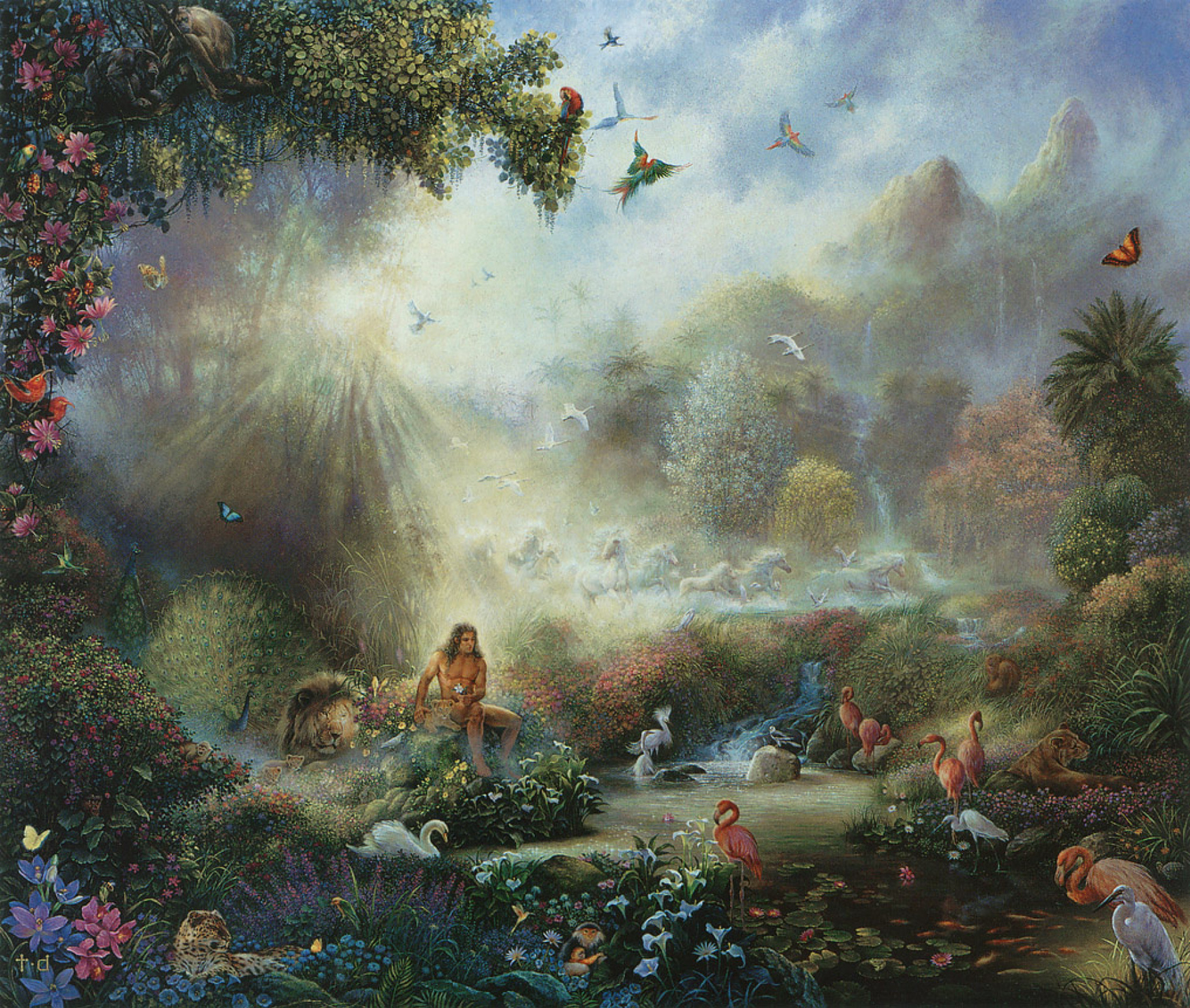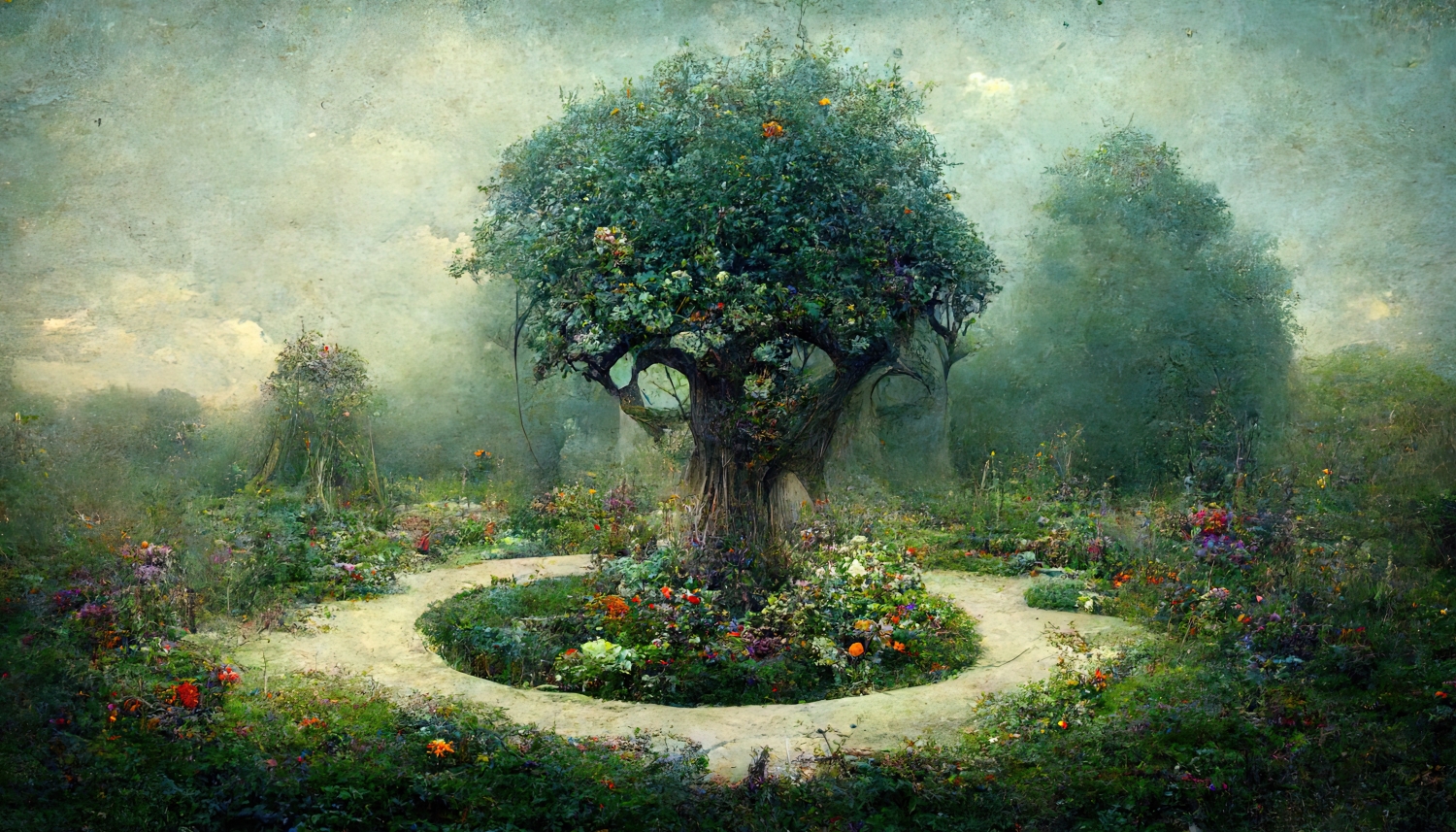Have you ever stopped to think about stories that truly shape how we see ourselves? There's this really old tale, you know, about a garden, a choice, and a moment that changed everything for us all. We're talking about something pretty fundamental here, something often called "eden polani," which points to the time when things shifted dramatically for humanity.
This idea, "eden polani," isn't just some old story from way back when; it's a way of looking at what happened right after the first people made a particular choice. It touches on the very core of what it means to be human, and why we sometimes feel a certain way about things. Basically, it's about the boot out of the Garden of Eden, as my text puts it, and what that truly meant for everyone who came after.
So, we're going to take a closer look at this pivotal moment, this "eden polani," and what it means for our nature, even today. It's a pretty big concept, honestly, and one that has influenced so many ideas about who we are and why we act the way we do. We'll explore the ancient narrative and consider its lasting impact, because, you know, it's still very much a part of how many people understand the human experience.
Table of Contents
- The Garden of Eden: A Brief Recap
- The Moment of Choice and Its Immediate Effects
- Eden Polani and the Change in Human Nature
- Common Questions About the Garden and Our Nature
- Reflecting on the Meaning of Eden Polani
The Garden of Eden: A Brief Recap
To really get a grip on "eden polani," we need to remember the setting first. There was, apparently, this beautiful place, a garden where the first humans lived. It was a place of plenty, with everything they needed, and a direct connection to their maker. There were, however, some boundaries, one of which involved a specific tree and its fruit. This tree was, in a way, a test, a symbol of a choice.
The story tells us that these first people were given a simple instruction: they could eat from nearly every tree in the garden, but not from this one particular tree. This wasn't just about fruit, though, was it? It was about trust, about following a given boundary. So, it really set the stage for what was to come, a moment that would change everything, and that's where the "eden polani" idea comes in, you know.
This garden, this initial setting, is pretty important because it shows us a state of being before things got complicated. It paints a picture of innocence and direct connection. It’s a very different picture from what came after, and understanding that contrast helps us appreciate the full weight of the events that followed. It's a foundational story for many cultures, after all.
The Moment of Choice and Its Immediate Effects
Then came the moment, the big choice. The story describes how the first people were tempted to eat from the forbidden tree. They were told their eyes would be opened, that they would gain a new kind of knowing. And, well, they did eat the fruit. This act, this single choice, had immediate and pretty profound effects, as a matter of fact.
Right away, the text tells us, their eyes were indeed opened, but not in the way they might have expected. They became aware of things they hadn't noticed before, like their own nakedness, and they felt shame. This was a completely new feeling for them, something that hadn't been a part of their experience in the garden before this point. It was a very quick shift in their perception, you see.
Following this awareness, there was a sense of separation, a breaking of that direct connection they once had. They tried to hide, to cover themselves, showing a clear change in their relationship with their maker. This moment, this "boot out of the garden," as my text explains, is what "eden polani" really refers to. It's the expulsion, the removal from that original state, and it was, honestly, a pretty big deal.
Eden Polani and the Change in Human Nature
So, the "eden polani" event, the expulsion from the garden, wasn't just a physical relocation. It was, apparently, something much deeper. My text points out that "From that point on man's nature is fallen." This means that the very essence of human beings underwent a change, a significant shift in their inherent qualities and tendencies. It's a profound idea, you know, that our very makeup was altered.
This change in nature is a central part of understanding the "eden polani" concept. It suggests that humanity, after this event, no longer operated from a place of pure innocence or perfect alignment. Instead, new inclinations, new struggles, and new ways of seeing the world became part of the human experience. It's a pretty foundational belief for many spiritual traditions, actually.
This shift, this "fallen nature," is often used to explain why people sometimes struggle with doing what is right, or why there's so much conflict in the world. It's a way of understanding the imperfections and challenges that seem to be a part of being human. It's a rather deep topic, one that people have thought about for thousands of years, to be honest.
What Does "Fallen Nature" Really Mean?
When we talk about "fallen nature" in the context of "eden polani," we're not just talking about being imperfect. It suggests a fundamental leaning, a tendency that pulls us away from an ideal state. It means that things like self-interest, desires that might not serve the greater good, and a struggle with moral choices became, in a way, ingrained in humanity. It's a pretty strong idea, you know.
It's like, before the "eden polani," humanity was set up to live in perfect harmony. But after the expulsion, after eating the forbidden fruit, that harmony was broken. The internal compass, so to speak, got a little bit off kilter. This doesn't mean people are inherently evil, but rather that they have a predisposition, a leaning, that makes doing good a more conscious effort. It's a subtle but significant difference, arguably.
This concept is pretty central to many theological discussions. It helps explain the need for guidance, for moral codes, and for systems of belief that aim to help people overcome these inherent leanings. So, the "fallen nature" aspect of "eden polani" is a really big piece of the puzzle for understanding human behavior and spiritual paths, more or less.
The Impact on Our Lives Today
Even today, in 2024, the ideas stemming from "eden polani" still resonate. Many people find that this ancient story offers a framework for understanding the struggles and triumphs of human existence. It gives a reason, for some, for why the world isn't perfect, and why people often make choices that lead to trouble. It's a way of making sense of things, you know.
If you consider the daily news, or just observe human interactions, you can sometimes see reflections of this "fallen nature" at play. Things like greed, anger, and conflict, which seem to be pretty common, are often attributed to this inherent shift that occurred after the "eden polani." It's a powerful explanation for some of the less desirable aspects of human behavior, you see.
On the other hand, understanding "eden polani" can also inspire efforts towards personal growth and societal improvement. If we acknowledge a "fallen nature," it can motivate us to strive for something better, to work against those inherent leanings. It encourages a path of self-reflection and, for many, a spiritual journey to reconnect with a more ideal state. It's a pretty hopeful message, actually, despite the initial difficult premise.
Common Questions About the Garden and Our Nature
People often have questions about this ancient story and its meaning. It's a topic that sparks a lot of thought and discussion. Here are a few common questions that come up when we talk about "eden polani" and the events surrounding it:
Why was the fruit forbidden in the first place?
Well, the story suggests it was about a boundary, a rule set by the creator. It was a test of trust and obedience. The fruit itself wasn't inherently bad, but the act of going against the instruction was what truly mattered. It was, in a way, about recognizing authority and living within established limits, you know.
Did the "fallen nature" mean humans became completely bad?
Not necessarily. The idea of "fallen nature" doesn't mean humanity became totally evil. Instead, it implies a loss of original innocence and a tendency towards self-centeredness or making choices that aren't always ideal. It means that doing good and living right requires more effort and conscious choice than it might have before. It's a subtle but important difference, basically.
Is there a way to overcome this "fallen nature"?
Many belief systems offer paths or solutions to address the "fallen nature." For some, it involves spiritual practices, seeking forgiveness, or following specific moral guidelines. The goal is often to restore a connection, or to strive for a state of being that more closely resembles the original ideal. It's a very personal journey for many, you see, and there are lots of different ideas about how to do it.
Reflecting on the Meaning of Eden Polani
The story of "eden polani," of the Garden's expulsion and the subsequent change in human nature, is a pretty powerful one. It gives us a framework for thinking about where we came from, and why we are the way we are. It’s not just a historical account for many; it’s a narrative that speaks to the ongoing human condition. It’s a very deep well of meaning, frankly.
Considering this idea can help us understand some of the challenges we face, both as individuals and as a collective. It offers a perspective on why things aren't always easy, and why making good choices sometimes feels like an uphill battle. It provides a lens through which to view human behavior, both the good and the not-so-good. It’s a rather sobering thought, in some respects.
But the story of "eden polani" also contains a lot of hope. It reminds us that even after a significant change, there's always the possibility of striving for something better, of seeking restoration or redemption. It encourages us to reflect on our own choices and to consider the kind of nature we want to cultivate within ourselves. To learn more about the biblical account of the Garden of Eden, you might find it interesting. You can also learn more about humanity's origins on our site, and link to this page understanding human nature for more insights.



